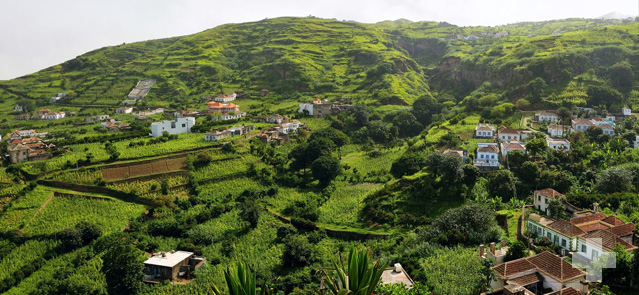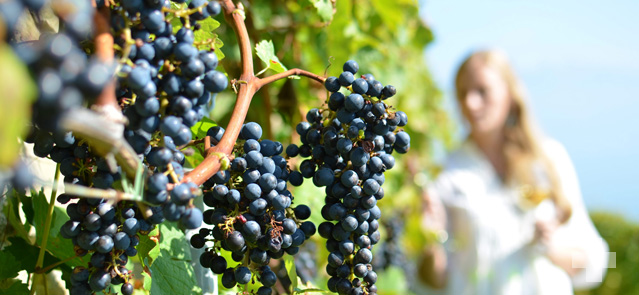The World Tourism Organization and the Catalan Tourist Board of the Government of Catalonia launch the first World Sports Tourism Congress to discuss the future expectations of the sector
- The Congress will take place in Lloret on 25 and 26 November
- The programme will feature renowned speakers such as Petra Stusek, Kattia Juarez Dubón, Edwin Moses and Marco Mazzi
- The event will be in a hybrid format and will use advanced technology to enhance the virtual presence of some speakers through holograms
- Registration for the event is now open at the World Sports Tourism Congress website
The Secretary-General of the World Tourism Organization (UNWTO), Zurab Pololikashvili, and the Minister of Business and Labour of the Government of Catalonia, Roger Torrent, presented the first World Sports Tourism Congress and its programme, within the framework of the 2030 Agenda for Sustainable Development, at a press conference held in Lloret de Mar and Barcelona.
The Congress, which previously had to be postponed due to the pandemic, will take place on 25 and 26 November at the Olympic Conference Centre in the Catalan town of Lloret de Mar. The presentation was attended by Marta Domènech, Director-General of Tourism, Ion Vilcu, Director of the Department of Affiliate Members of UNWTO, Narcís Ferrer, Director of the Catalan Tourist Board, and Jaume Dulsat, Mayor of Lloret de Mar.
The Congress will have a total of 62 speakers from different countries such as the United States, Canada, France, Wales, Northern Ireland and Croatia. Leading figures from the world of sport and tourism, representing entities that are also UNWTO Affiliate Members, have already confirmed their attendance as speakers, such as Petra Stusek, President and CEO of European Cities Marketing; Kattia Juarez Dubón of the Fédération Internationale de Motocyclisme; Edwin Moses, Olympic medallist; Marco Mazzi, Vice- President of the International Sports Travel Agencies Association, and Mafalda Magalhaes, Director of FC Porto Museum.
Registration is now open at https://worldsportstourismcongress.org. The Congress will be a hybrid event, allowing both in-person and virtual participation, and aims to strengthen the relationship between sports tourism and sustainable and inclusive development, diversification, differentiation and de-seasonalization. Also collaborating in the organization of the event are the Costa Brava Girona Tourist Board and the City Council of Lloret de Mar through Lloret Turismo.
The Congress, which already had almost 400 pre-registered participants before the official opening of registration, will address topics such as the challenges for the sector posed by COVID-19; trends in sport and physical activity; innovation in the development of sports tourism; mass attendance at sporting events; as well as the environmental framework, diversity and inclusion in the world of sport.
The programme also includes other aspects, such as different public-private governance strategies, the digital transformation of the sector, e-sports, digital marketing, communication and commercialization. Over the two days of the Congress, there will be different sports activities for the participants, academic presentations and technical visits; in addition, spaces will be set up for networking to maximize synergies among the attendees.
Telepresence at the Congress through holograms
Among the innovations that the Congress will bring, as presented at the press conference, are two hologram booths to enable the participation of different speakers who will not be in Lloret de Mar in person. It will be the first event in Catalonia to use this advanced technology, presented at the Mobile World Congress 2021. Fibre-optics and 5G connectivity will make it possible to bring personalities from all over the world closer to the Congress remotely and in real time, through giant screens.
Tourism and Sports, a priority line of action for UNWTO
For the World Tourism Organization, Tourism and Sport represents a priority that it has been actively developing over the past two years. In addition to organizing this World Sports Tourism Congress together with the Catalan Tourist Board, UNWTO has supported other projects focused on this line of action.
UNWTO recognizes the beneficial bond of mutual reinforcement that unites tourism and sport. Key indicators such as employment linked to sport, the percentage of trips initiated for sports reasons, the total expenditure associated with these trips and public spending linked to sport, have been registering remarkable growth in recent years. Sports tourism also raises the visibility of destinations and encourages investment in infrastructure, with its positive multiplier effects at the economic and social levels.
In the current context of crisis that the tourism sector, in particular, and all other sectors of society and the economy are experiencing, the contribution of each component and subsector will be very important, and the area of tourism and sport will be no exception.
Beyond the economic indicators mentioned above, it is imperative to highlight the values that sport inspires and promotes, and that apply to all aspects of economic and social life, including tourism.
The Secretary-General of the World Tourism Organization, Zurab Pololikashvili said: “... the gradual resumption of the calendar of competitions and major sporting events is an important driver of the restart of tourism after the unprecedented shock of the pandemic. Sporting events can play a decisive role in the tourism development in destinations”.
Lloret de Mar – Costa Brava
In recent years, sports tourism has become a strategic sector in Catalonia thanks to its state-of-the-art facilities and the wide range of possibilities it offers for sports-themed stays for individuals and teams alike. In 2003, the Catalan Tourist Board created its Sports Tourism Brand, a distinction that is granted to municipalities, facilities and specialized companies that meet quality standards in the different sports disciplines and recognizes excellence in resources and services to practice sports or enjoy events and championships for elite athletes, professionals and fans of major sporting events.
Since 2006, Lloret de Mar has been recognized by the Catalan Tourist Board as a certified Sports Tourism Destination in the disciplines of football, athletics, swimming, group sports, triathlon and cycling. The municipality has an extensive hotel infrastructure to accommodate all attendees of the Congress and the different parallel events. Each year it receives more than 60,000 athletes and accompanying persons, and during 2019, it hosted a total of 446 sports events and competitions.
Related links
Category tags


















































